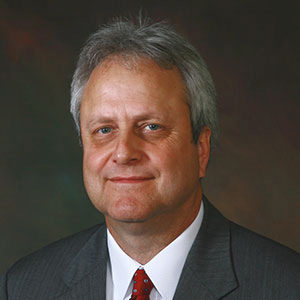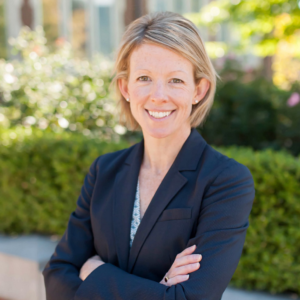The Economic, Fiscal and Financial Consequences of COVID-19: A Panel Discussion
Thursday, Nov. 12, 1:30 – 2:30 p.m. ET
Description
COVID-19 has been a major shock to the economy, with some setbacks exceeding those from the Great Depression. The economic shock has in turn jarred the finances of all levels of government and has impacted the balance sheets of households and businesses. While recovery is now underway, it will take years before economic activity is restored to pre-COVID-19 levels. This panel of experts will explore the effects of the COVID-19 pandemic with particular focus on the economy, government finances and the agriculture sector. They will trace out the downward trajectory of the economy and the likely path forward. Following their individual remarks, the panelists will engage in Q&A among themselves and with the audience.
What You’ll Learn
- Implications of COVID-19 for major indicators like gross domestic product, business investment, personal income, jobs, and the unemployment rate in Tennessee and beyond
- Impacts on farm prices, production, sales and exports
- Consequences for federal, state and local government finances
- The alphabet soup of possible recovery trajectories
- Interconnections between COVID-19, public health, and economic performance
Speakers

Associate Director, Boyd Center for Business and Economic Research and Director, Howard H. Baker Jr. Center for Public Policy, UT Knoxville
Matt Murray holds a joint appointment with the Howard H. Baker Jr. Center for Public Policy, the Boyd Center for Business and Economic Research and the Department of Economics at UT Knoxville. Murray has worked closely with state and local governments on a wide range of public policy issues including economic development incentives and economic/fiscal impact analysis. He is a former head of the economics department and former chair of the University Graduate Council. He currently directs the program in public administration in the economics department. His research generally explores the intersection between public policy and the private sector and has focused heavily on state tax policy, tax administration and tax compliance. At the Baker Center, Murray is actively engaged in enriching student engagement initiatives and cultivating research in the areas of energy policy, environmental policy and global security. He also maintains the Tennessee Econometric Model which provides a short-term and long-term forecast for the state economy and provides economic forecasting services for the Tennessee Valley Authority. Murray earned a bachelor’s degree from the University of Northern Iowa and a master’s degree and doctorate from the Maxwell School of Citizenship at Syracuse University.

Blasingame Chair of Excellence, UT Institute of Agriculture
Andrew Muhammad is the Blasingame Chair of Excellence in Agricultural, Food, and Natural Resource Policy at the UT Institute of Agriculture. He brings considerable experience and research to the Blasingame Chair position, where his focus is on assisting the state and nation’s agricultural decision makers in the evaluation of potential policies and programs dealing with agricultural commodities, food and nutrition, natural resources and international trade, as well as advocating for state and regional agricultural opportunities. Previously serving as the associate director of the Market and Trade Economics Division and the chief of the International Demand and Trade Branch at the USDA Economic Research Service, Muhammad has developed a large network of trade policy experts and forged solid working relationships with decision makers in the public and private sectors. His research on global food demand has been widely cited and used in economic and global models such as USDA’s baseline model, the GTAP model and IFPRI’s IMPACT model. Muhammad’s current research focuses on agricultural trade and trade policy, effects of trade on developing countries and global food demand.
He has written 49 refereed journal articles and approximately 30 reports and other publications and has served as the principal investigator or co-PI on funded research and outreach activities totaling $2.7 million. His accolades include the professional contribution award from the Southern Agricultural Economics Association.
Earning his doctorate in food and resource economics from the University of Florida, Muhammad’s dissertation on the derived demand for imported dairy products in selected international markets garnered two outstanding Ph.D. dissertation awards—one from the Food and Resource Economics Department and one from the Food Distribution Research Society. He also holds a master’s degree in agricultural economics from the University of Missouri and a bachelor’s in agribusiness from Southern University. He has traveled the globe as an invited speaker, as well as presenting to regional and national audiences.

Associate Professor of Economics, UT Knoxville, Chief Domestic Economist at the White House Council of Economic Advisors (2017-2018)
Marianne Wanamaker is an associate professor of economics at UT Knoxville, a research associate at the National Bureau of Economic Research and a research fellow at the Institute of Labor Economics and at the University of Stellenbosch, South Africa. She serves as co-editor of Explorations in Economic History and is the former chief domestic economist at the White House Council of Economic Advisors, where she also served as the senior labor economist.
She is a member of the Federal Workforce Policy Advisory Board. She is a former associate consultant for Bain & Company in Boston, Massachusetts, where she worked on the health care and retail teams. Wanamaker’s research interests include labor economics and workforce development, education, American economic history and demography. Her work has been profiled in The Wall Street Journal, The Atlantic, and The Washington Post, among other outlets. The National Science Foundation, National Institutes of Health and private funders have awarded grants to support her research. Along with Marcella Alsan (Stanford), she is the recipient of the 2019 Kenneth J. Arrow Award for her work on the Tuskegee study, named by the International Health Economics Association as the best paper in health economics published in 2018. She is an executive advisory board member at ThinkWhy, a Dallas-based labor market data startup founded in 2018, and a director of 3 Roots Capital, a hybrid private equity/lending investment company based in Knoxville, Tennessee.
In addition to her research record, Wanamaker has been the recipient of several college and university-level teaching awards, including UT’s Alexander Prize in 2019. In 2017, she was named to Poets and Quants Top 40 Undergraduate Professors. She regularly teaches undergraduate and MBA courses on economics and business ethics.
She is a 2001 summa cum laude graduate of Vanderbilt University, where she was a member of Phi Beta Kappa. She completed her doctoral work at Northwestern University in 2009 and has been on faculty at UT ever since. At UT, she holds positions as a Kinney Family Faculty Fellow and a Boyd Center for Business and Economic Research Fellow.



